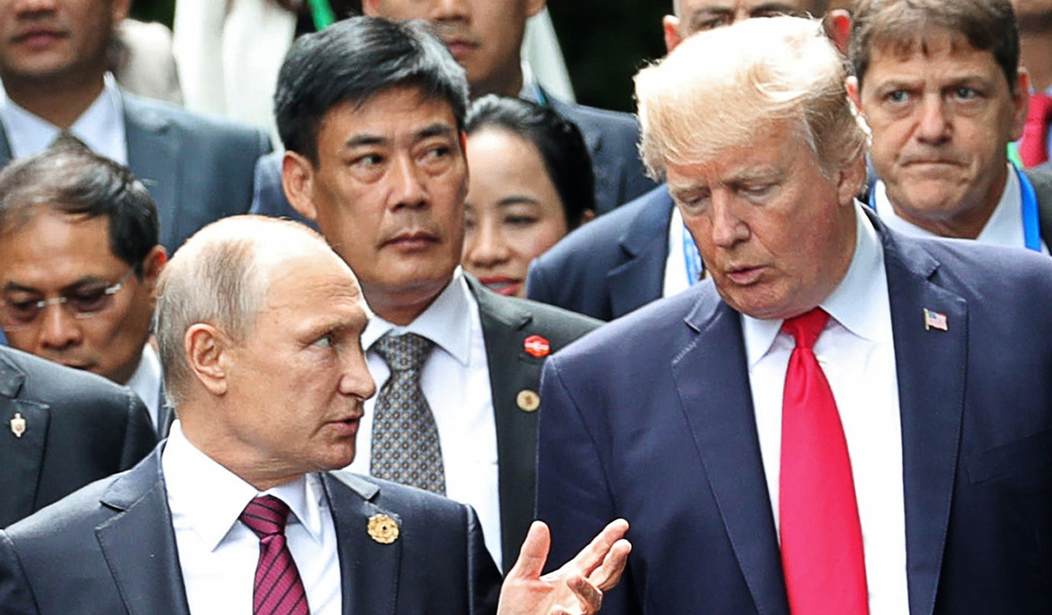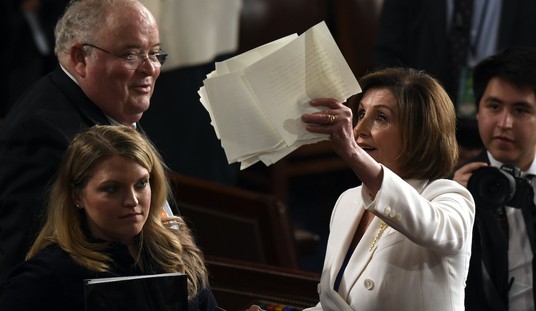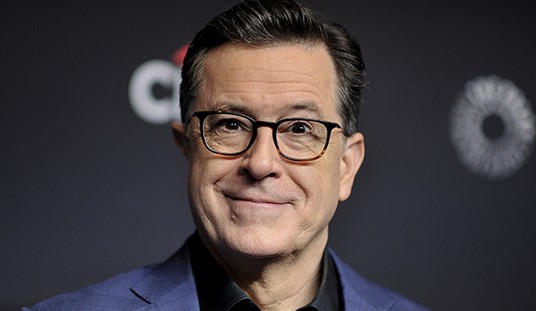A team of researchers from the New York University Center for Social Media and Politics spent the last few years analyzing the impact of Russian messaging on social media during the 2016 election. The paper, which was published Monday in the peer-reviewed journal Nature Communications, found the activities of the feared “Internet Research Agency,” thirteen of whose members were indicted due to the efforts of the addled Andrew Weissmann sock-puppet, Robert Mueller (see If Mueller’s Indictment Isn’t a Nothingburger You Could Be Forgiven For Making That Mistake), had no impact on the 2016 election. None. Zero. Zip. Zilch. Nada. The social media effort neither brought more voters to Trump nor did it discourage Hillary! voters and depress turnout for her.
[We] we find no evidence of a meaningful relationship between exposure to the Russian foreign influence campaign and changes in attitudes, polarization, or voting behavior.
What they did find was that the press continuously yammering about Russia, Russia, Russia did, itself, have an impact on the election.
Finally, while our evidence points to the absence of a relationship between exposure to social media posts from Russian foreign influence accounts and individual-level outcomes, foreign influence campaigns may also succeed through second-order effects: those effects that are achieved by provoking a domestic reaction to the intervention itself. Indeed, debate about the 2016 US election continues to raise questions about the legitimacy of the Trump presidency and to engendermistrust in the electoral system,which in turnmay be related to American’s willingness to accept claims of voter fraud in the 2020 election. Such beliefs appear to stem in large part from speculation that Russian interference—whether on social media or through other channels—influenced the election outcome34–36. In a word, Russia’s foreign influence campaign on social media may have had its largest effects by convincing Americans that its campaign was successful. Our results thus provide a corrective to the view that the foreign influence campaign and those like it can easily manipulate the attitudes and voting behavior of ordinary social media users. Foreign actors may nevertheless adapt their behavior on social media to have meaningful effects, and political contexts may become more conducive to foreign influence campaigns. This warrants that our results be taken with caution when assessing future foreign influence campaigns on social media.
The study found that the social media material allegedly produced by the IRA was primarily read by avid Trump supporters. It was mainly shared between Trump supporters. It was persuasive to the extent that the Russian-created material was congruent with attitudes already held by the people reading it. In short, if it functioned precisely the way social media works. People seek out accounts and groups with whom they agree and ignore accounts and groups that they disagree with.
The Washington Post (lolol) reviews the article in Russian trolls on Twitter had little influence on 2016 voters.
They try to salvage some of the credibility of four years of Washington Post political coverage.
- It doesn’t examine other social media, like the much-larger Facebook.
- Nor does it address Russian hack-and-leak operations. Another major study in 2018 by University of Pennsylvania communications professor Kathleen Hall Jamieson suggested those probably played a significant role in the 2016 race’s outcome.
- Lastly, it doesn’t suggest that foreign influence operations aren’t a threat at all.
This overstates the conclusions in Jamieson’s book. That book took scarcely a year to pitch to a publisher, gather data, analyze the data, write, edit, and publish. I’m not saying it’s slipshod work based on bullsh** analysis; I’m sure Jamieson is an absolute beast of a researcher, analyst, and writer. What I will say is that most of what we know about the 2016 election was not known by the time this book was published.
“My personal sense coming out of this is that this got way overhyped,” Josh Tucker, one of the report’s authors who is also the co-director of the New York University center, told me about the meaningfulness of the Russian tweets.
“Now we’re looking back at data and we can see how concentrated this was in one small portion of the population, and how the fact that people who were being exposed to these were really, really likely to vote for Trump,” Tucker said. “And then we have this data to show we can’t find any relationship between being exposed to these tweets and people’s change in attitudes.
Ya think?
The whole Russia Hoax, in my opinion, was a hostile information operation designed to change the course of an election and then oust a legally elected president. The hostile power was not Russia; Russia was the dupe in this story. The hostile power was the Deep State, represented by large swaths of the FBI and Intelligence Community who feared Trump would upset the apple cart.
We know that the Russia Hoax was a product of the Clinton campaign. It was laundered through James Comey and the FBI. And it was amplified by a complicit media into a national issue both to damage Trump and for the sake of increased ratings.
While the Russia IRA trolls may not have changed votes for Trump, there is no doubt that the media pushing the obvious frauds of the Steele Dossier and Alfa Bank server onto every front page and every new show in the nation made Trump’s path to victory much more problematic.
The only road to redemption for mainstream media orgs begins will a full self-audit of the Russiagate fiasco, which includes Pulitzers that need rethinking. It’s not a left or right issue, they just got this completely wrong on the facts, and need to own it. https://t.co/mynVG09BSH
— Matt Taibbi (@mtaibbi) January 10, 2023
When Jim Jordan fires up his updated version of the “Church Committee,” he needs to add election interference to civil liberties violations as part of his focus.
Nature Article on Effects of Russian Messaging in 2016 by streiff on Scribd














Join the conversation as a VIP Member